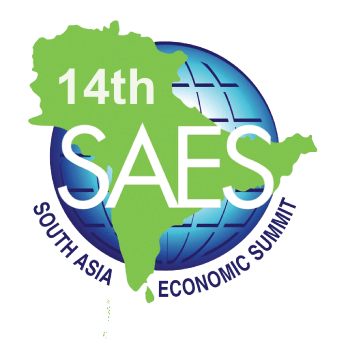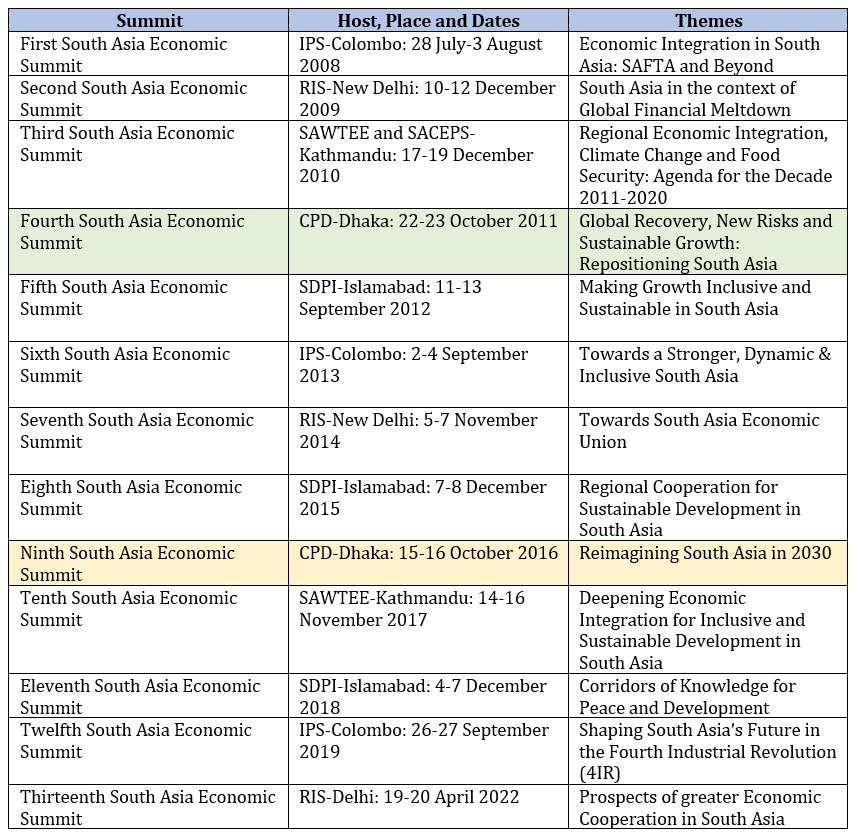 About South Asia Economic Summit (SAES)
About South Asia Economic Summit (SAES)
The South Asia Economic Summit (SAES) was initiated as a platform to discuss and debate the issues perceived as critical to advancing the causes of deepening regional cooperation and integration in South Asia. Five leading think tanks in South Asia came together in 2008 to establish the SAES in the image of Davos, to create a South Asian Davos. These were: Centre for Policy Dialogue (CPD), Bangladesh; Institute of Policy Studies of Sri Lanka (IPS); Research and Information System for Developing Countries (RIS), India; Sustainable Development Policy Institute (SDPI), Pakistan; and South Asia Watch on Trade, Economics and Environment (SAWTEE), Nepal. The founding members were entrusted with the responsibility of convening an annual Summit on a rotating basis. The Summit was to bring together key stakeholders of South Asia’s integration and also experts and scholars from beyond the region who worked on the issues of interest and concern to South Asia.
SAES was initiated by realising that there was a need for a deeper understanding of the challenges confronting South Asia at a time of rapid changes within the region and in view of a fast-evolving global scenario. SAES was conceived as a two-track learning opportunity: (i) for knowledge actors to share results of evidence-based research and what these could mean in terms of policymaking in various critical areas of development and regional cooperation in South Asia; and (ii) for policymakers and non-state actors to exchange views as regards major challenges in implementing the various policies and initiatives to deepen South Asian integration. By leveraging contributions from across a diverse range of disciplines and by drawing contributions from research and policymaking communities, SAES was envisaged to emerge as an intellectual enterprise important in South Asia from which policymakers, researchers and non-state sectors would stand to gain.
In the process, a new generation of intellectuals and actors was motivated to commit themselves to advance the cause of South Asian cooperation. This regionally motivated network of stakeholders has kept the South Asia vision alive at a time when divisive politics has kept South Asian countries apart, and SAARC remains comatose and dysfunctional. These non-state actors are willing and able to shine a light on the possibilities and potentials of South Asian cooperation in view of the new global emerging contexts SAES XIV is geared to leverage this intellectual capacity to reignite the political inertia and stimulate interest and action to take the agenda of South Asian cooperation forward in the years ahead.
The following table shows that various themes of past SAES conclaves have covered a broad spectrum of issues reflecting both emergent and emerging challenges facing South Asia at that time.
 (+88 02) 55001185, +8801713 244 349
(+88 02) 55001185, +8801713 244 349 

